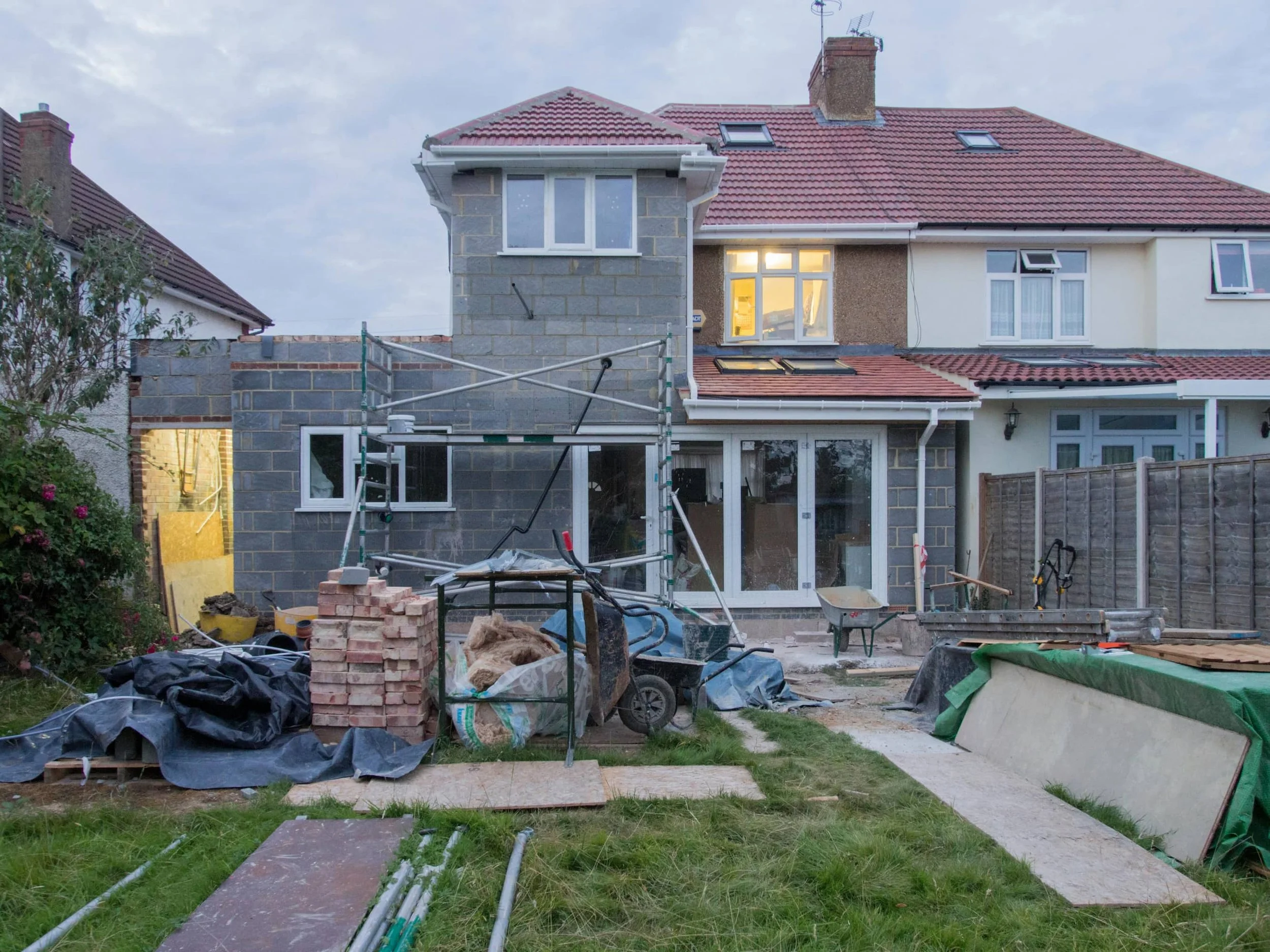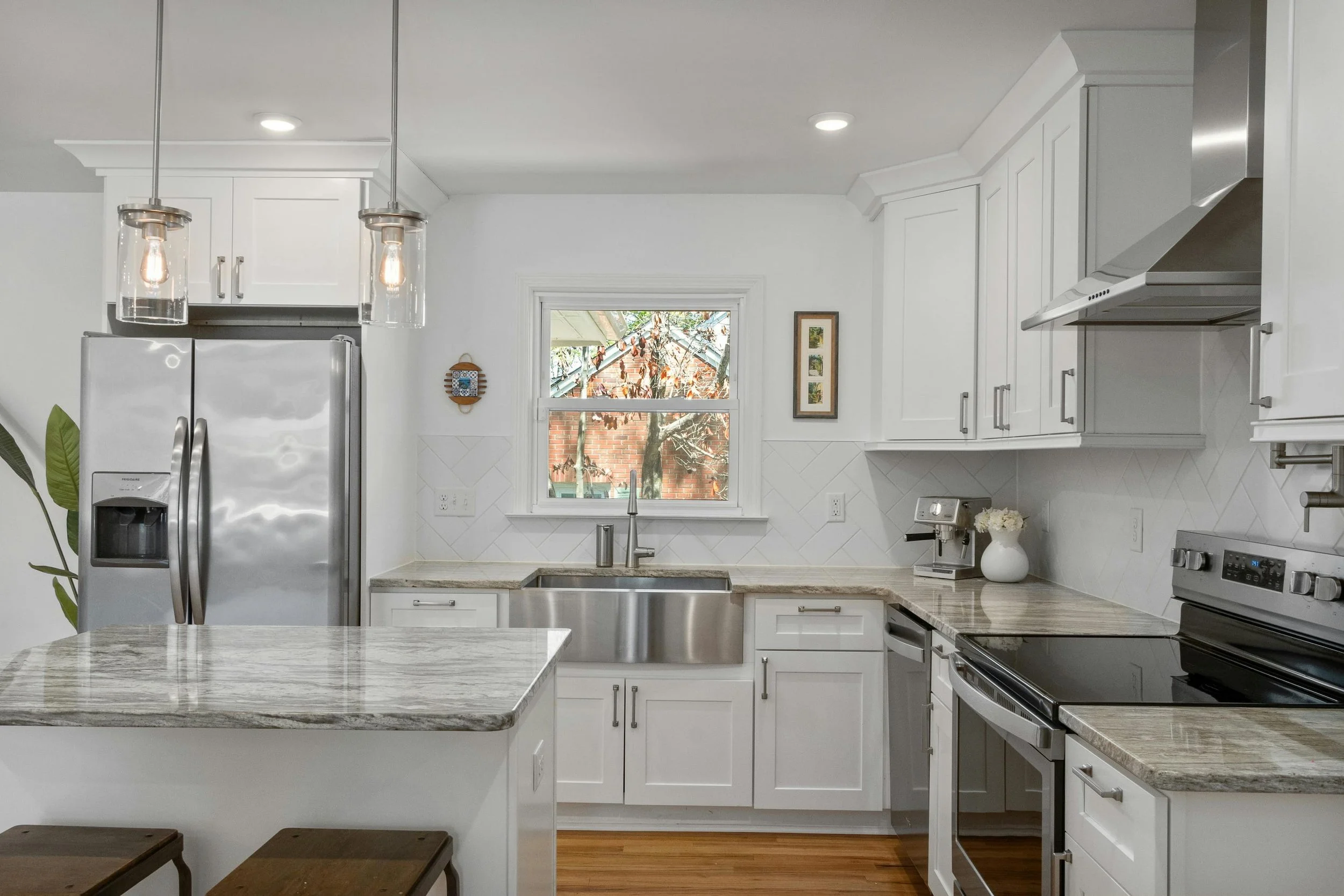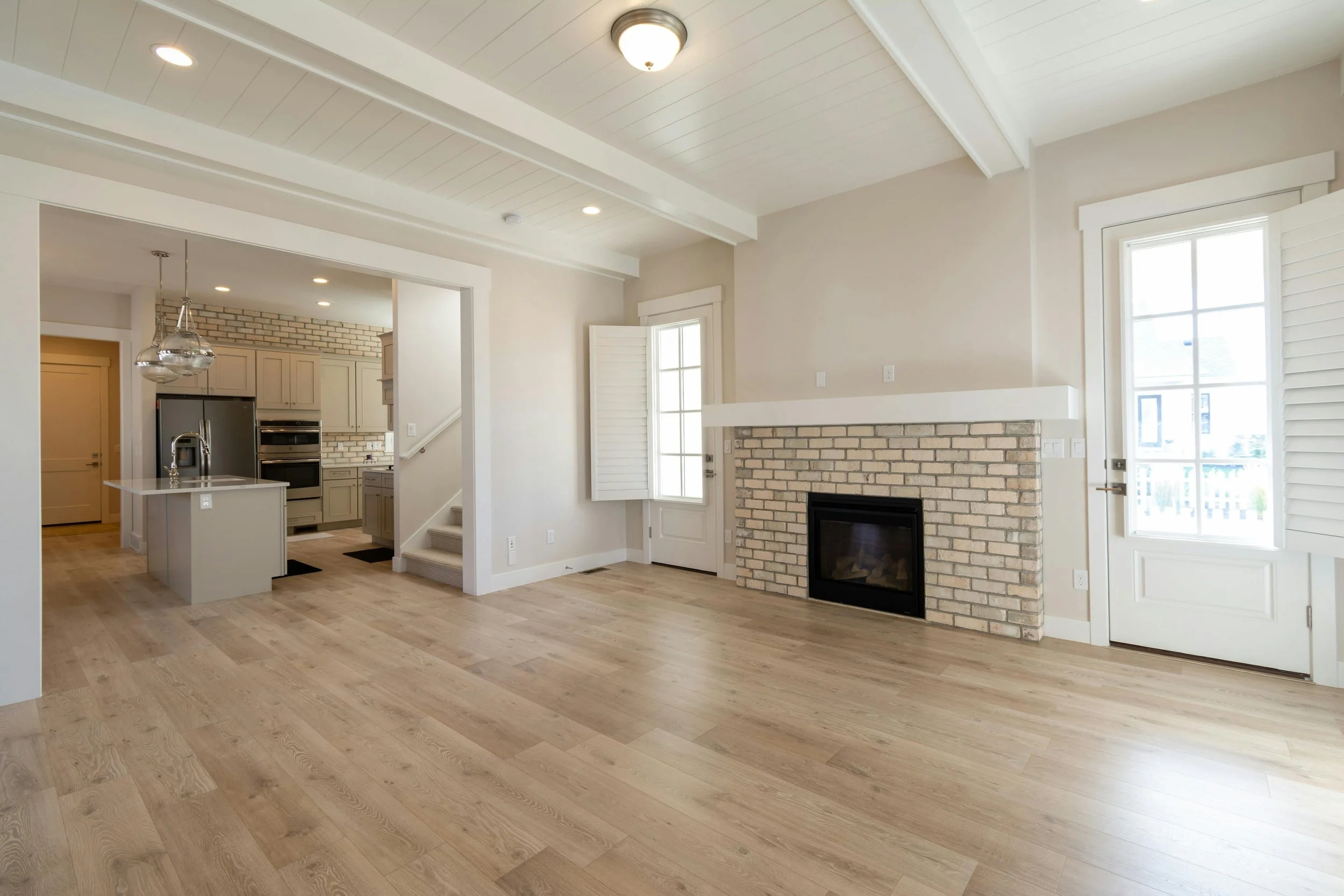Should You Fix Up an Inherited House Before Selling?
Inheriting a property can be both a blessing and a challenge. Deciding whether to renovate before selling is a crucial step. Renovations can boost the property's value and attract more buyers. However, they also require time, effort, and money.
Understanding the benefits and drawbacks of inherited property renovation is essential. It helps you make informed decisions that align with your goals.
This guide will explore key factors to consider before renovating. We'll discuss home improvement ideas and provide a home renovation checklist.
You'll also find property renovation tips and insights on financing options. By the end, you'll be better equipped to decide if renovating is the right choice for you.
Understanding Inherited Property Renovation
Inherited property renovation involves updating or repairing a property you've inherited. These updates can vary from minor cosmetic changes to major structural fixes. The goal is to enhance the property's market value and appeal.
Before embarking on renovations, it's crucial to understand the property's current condition. This will help you identify which improvements are necessary. Renovations are not always straightforward and may require professional assessments.
Consider these renovation basics:
Determine which areas need updating or repair.
Assess if these changes will add significant value.
Decide between professional help or DIY efforts.
In addition to increasing value, renovations can address safety and compliance issues. Properties that have been unoccupied or aging might not meet current codes. Updating these aspects not only helps in selling but also ensures the property is safe.
Consulting real estate experts can provide insights into the local market. Understanding what buyers in your area are looking for can guide your renovation choices. This ensures that your efforts align with current trends and buyer preferences.
Assessing the Condition of Your Inherited Property
Before making renovation decisions, assess your inherited property’s condition thoroughly. This step helps identify what needs fixing or updating. Conducting an honest appraisal of the property’s state can prevent costly surprises later.
Begin your assessment with a walk-through of each room. Look for visible issues like outdated fixtures, damaged flooring, or peeling paint. Use a notepad to jot down areas that require attention.
Consider hiring a professional inspector for a detailed evaluation. They can identify hidden problems that might not be visible. Structural issues, electrical faults, or plumbing leaks are often not apparent to untrained eyes.
Create a list of repairs and upgrades needed:
Cosmetic fixes like paint or landscaping.
Structural repairs, like roof or foundation issues.
Safety updates, like wiring or plumbing checks.
Once you have a clear picture of the property's condition, prioritize tasks. Focus on essential repairs that add the most value. This strategic approach ensures you tackle critical issues first without spreading your resources thin.
Weighing the Pros and Cons: Renovate or Sell As-Is?
Choosing between renovating or selling an inherited property as-is is crucial. Both options have distinct advantages and potential drawbacks to consider. Careful evaluation can lead to the best decision for your situation.
Renovating can increase property value and appeal. Updated homes may attract more buyers and fetch higher offers. However, renovations can be expensive and time-consuming, requiring careful budgeting and planning.
Selling as-is might be the right choice if the property is in decent condition or if funds are limited. This option saves you from renovation stress and allows for a quicker sale process. Yet, it could result in lower offers due to visible deficiencies.
Consider the current real estate market when deciding. In a seller's market, even properties needing work may sell quickly. In a buyer's market, renovations could help your listing stand out.
Key considerations include:
Your budget for potential renovations.
Time available for renovation completion.
Potential return on investment for upgrades.
Emotional connection to the property and willingness to make changes.
Ultimately, align your choice with personal circumstances, financial capabilities, and the property's potential in the market.
Key Home Improvement Ideas That Add Value
Renovating an inherited property can significantly boost its market value. Strategic improvements enhance appeal and attract potential buyers. Prioritize projects that offer substantial returns and elevate the property's overall presentation.
Focus on areas with a proven track record of increasing value. Kitchens and bathrooms top the list for impactful upgrades. These spaces, when modernized, serve as major selling points that can catch buyers' interest quickly.
To maximize returns, think about incorporating energy-efficient features. Upgrades like energy-efficient windows and appliances can appeal to eco-conscious buyers. These enhancements save on future utility costs, adding a compelling selling point.
Here are some valuable home improvement ideas:
Refresh interiors with modern, neutral paint colors.
Upgrade kitchen cabinets, countertops, and appliances.
Remodel bathrooms with new fixtures and tiles.
Enhance curb appeal with landscaping and a fresh exterior coat.
Install energy-efficient lighting and smart home systems.
Selecting the right improvements requires understanding what prospective buyers desire. Opt for updates that reflect current design trends and functionality. This approach not only elevates your property's value but also ensures it stands out in the market.
Creating a Home Renovation Checklist for Inherited Properties
A home renovation checklist is your roadmap to a successful renovation. It helps organize tasks, manage time, and control costs. Start by listing the essential repairs and upgrades required for the inherited property.
Next, prioritize tasks based on their impact and urgency. Address any safety issues immediately. This ensures the property is not only appealing but also secure for potential buyers. Consider both small cosmetic updates and major structural changes.
Here's an effective home renovation checklist to guide you:
Evaluate structural and foundational integrity.
Check for plumbing and electrical system updates.
Plan kitchen and bathroom remodels.
Refresh paintwork and flooring.
Enhance landscaping and curb appeal.
Each item on your checklist should align with your budget and timeline. This will facilitate a smoother renovation process. Having a clear and comprehensive plan increases efficiency and can prevent unexpected delays. This structured approach ensures you manage the renovation effectively and cost-efficiently.
Property Renovation Tips for a Smooth Process
Embarking on an inherited property renovation requires thoughtful planning. Key property renovation tips can help streamline the process. First, set a realistic budget that covers all anticipated expenses. This will prevent financial stress and ensure you complete the project without running out of funds.
Hiring reputable contractors is crucial. Check their references and past work to ensure quality outcomes. Clear communication with your contractor will minimize misunderstandings and keep the renovation on track. Make sure to obtain the necessary permits to avoid legal issues later.
Here's a quick list of tips for a seamless renovation journey:
Develop a detailed project timeline.
Regularly track renovation progress.
Maintain flexibility for unexpected changes.
Communicate openly with your renovation team.
Remember, staying organized is the key to a successful renovation. Keeping detailed records of expenses and progress helps you manage the project effectively. Being proactive and prepared reduces stress and increases the chances of achieving your renovation goals smoothly.
Financing Your Renovation: Loans and Budgeting
Renovating an inherited property can be financially demanding. Understanding financing options is crucial. A renovation loan on an inherited property is a viable option. These loans are tailored to provide the funds needed for significant upgrades.
Budgeting is equally important to avoid overspending. Start by estimating the total cost of renovation using a renovation cost guide. This ensures you cover all potential expenses. Keep an eye on your budget and adjust as needed to accommodate unexpected costs.
There are different financing options available. Here are a few to consider:
Personal loans: Flexible, but may have higher interest rates.
Home equity loans: Offer lower rates if you have equity.
Credit lines: Useful for accessible, ongoing funding.
Each financing method comes with its pros and cons. Research thoroughly to find the one that best fits your needs. Efficient budgeting and the right loan choice can ease financial pressure. This allows you to focus on transforming your property and increasing its market value.
Renovation Cost: Estimating and Managing Expenses
Renovating an inherited property involves various costs. Understanding these helps manage your budget effectively. A renovation cost guide can help you estimate typical expenses, from materials to labor. This foresight aids in planning and prevents financial surprises.
Key elements to include in your cost estimation are materials, labor, permits, and contingency funds. It's also wise to account for potential increases in material prices or unexpected repairs. Stay realistic and thorough in your planning.
To manage expenses efficiently, consider these steps:
Get multiple quotes: Compare prices from different contractors.
Prioritize tasks: Focus on high-return renovations first.
Monitor spending: Track all expenses closely and adjust as needed.
Having a well-prepared cost management strategy is essential. It not only keeps your renovation on budget but also enhances the property's appeal. By managing costs wisely, you ensure a more successful and financially sound renovation process.
Legal, Tax, and Emotional Considerations
Selling an inherited property involves more than renovations. Legal and tax implications are vital to understand. Consult a tax advisor to learn about potential capital gains taxes. Regulations can affect the net profit from your sale.
Emotions tied to inherited properties can be complex. It’s crucial to consider the sentimental value before deciding. Assessing emotional and financial factors will guide your decisions.
To navigate these complexities, consider:
Consulting experts: Tax advisors and estate planners can offer guidance.
Understanding tax laws: Be aware of any exemptions available.
Managing emotions: Reflect on your attachment and its impact.
Careful consideration of these aspects can simplify the process. Balancing legal, tax, and personal elements ensures a well-informed decision.
Should You Renovate Before Selling Then?
Deciding whether to renovate an inherited property before selling is significant. Analyzing all pros and cons is crucial. Renovations can enhance market appeal and potentially increase the sales price.
However, consider the time, effort, and costs involved. Sometimes, selling the property as-is makes more sense. Evaluate your financial situation and how soon you wish to sell.
In addition, market trends and buyer expectations can influence your decision. Consulting with a real estate expert might provide valuable insights. The final choice should reflect your goals and resources. Assess all factors carefully to make the best decision for your situation.





